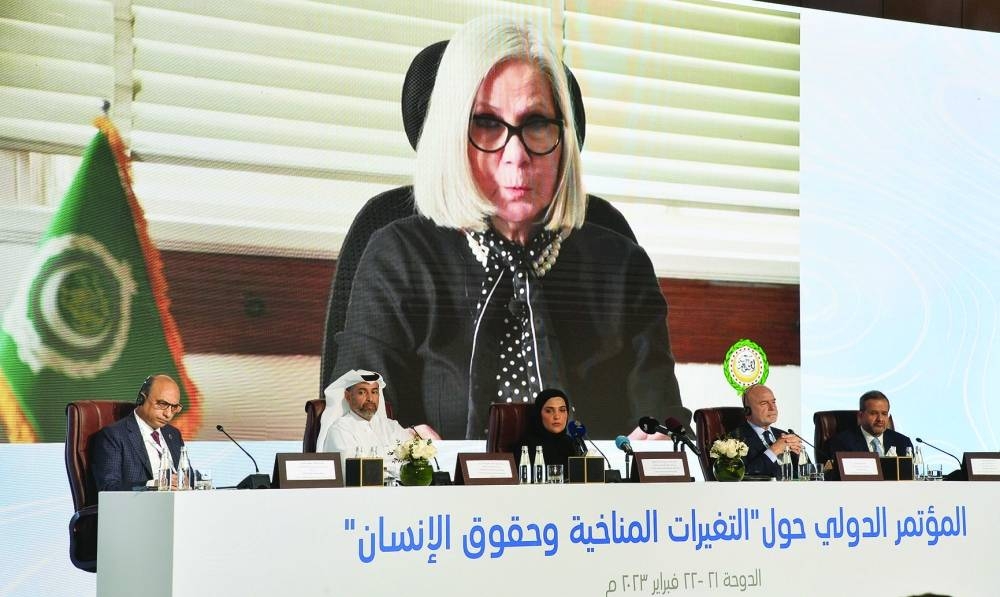Arab League’s Assistant Secretary-General and Head of Social Affairs Sector ambassador Dr Haifa Abu Ghazaleh has stressed the importance of co-operation between regional and international institutions to address the phenomenon of climate change, warning of its consequences on human rights.
In her virtual speech during the International Conference on Climate Change and Human Rights, which kicked off yesterday in Doha, Dr Abu Ghazaleh said that co-operation between human rights circles and regional and international institutions has become an urgent matter in order to exchange experiences and build the capacities necessary to develop successful measures to address climate change.
She pointed out the challenges humanity is going through as a result of the issue of climate change, which represents a threat to human existence itself, as it exacerbates daily and has become a common concern for humanity, noting the negative effects of the exacerbation of global warming and the increase in emissions.
The dilemma of climate change has become a human rights concern par excellence, as it represents an explicit threat to the highest right, which is the right to life, Dr Abu Ghazaleh stressed, noting that talking about climate change means talking about natural disasters, rising water levels in the sea, floods, heatwaves, drought, desertification, water scarcity, disease spread, and loss of biodiversity.
She warned that the Arab region is not immune from these phenomena, due to its geographical location, which requires strengthening co-operation, redoubling efforts and exchanging best practices.
Dr Abu Ghazaleh said that the Arab League has placed the issue of climate change on the top of its priorities and included it in its various economic and social activities, adding that the impact of this issue on the human rights level has become a permanent item on the agenda of the permanent Arab committee for human rights.

Dr Haifa Abu Ghazaleh delivers her virtual speech. PICTURE Shaji Kayamkulam
